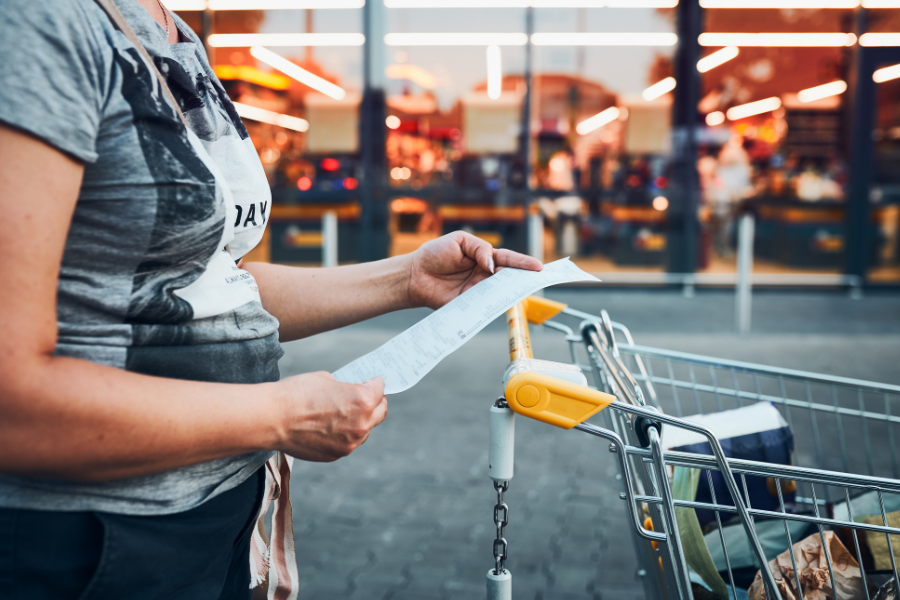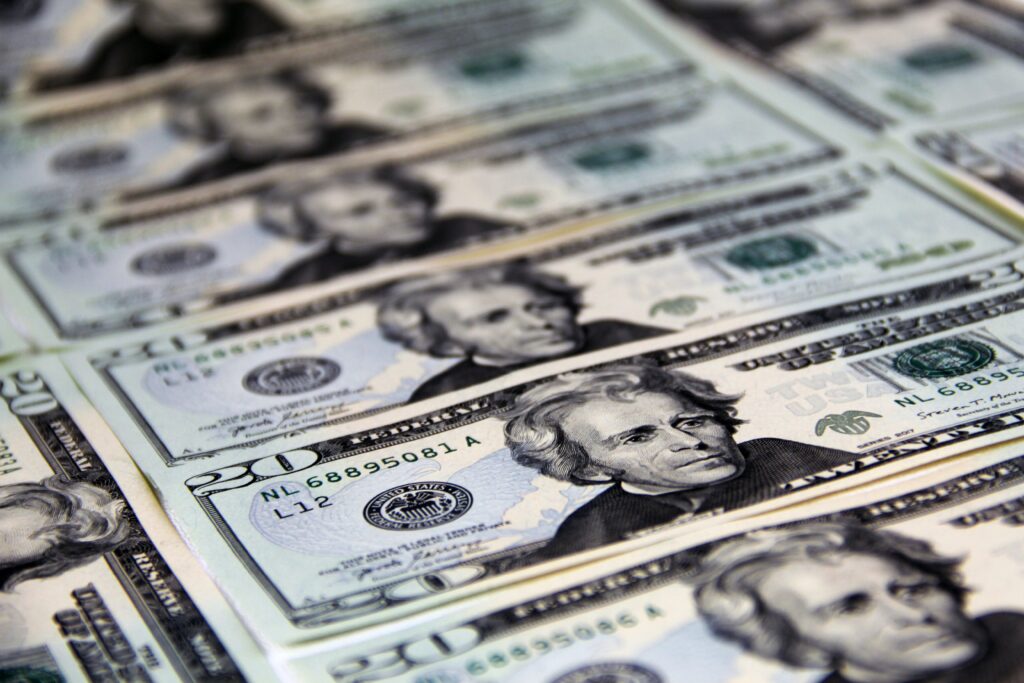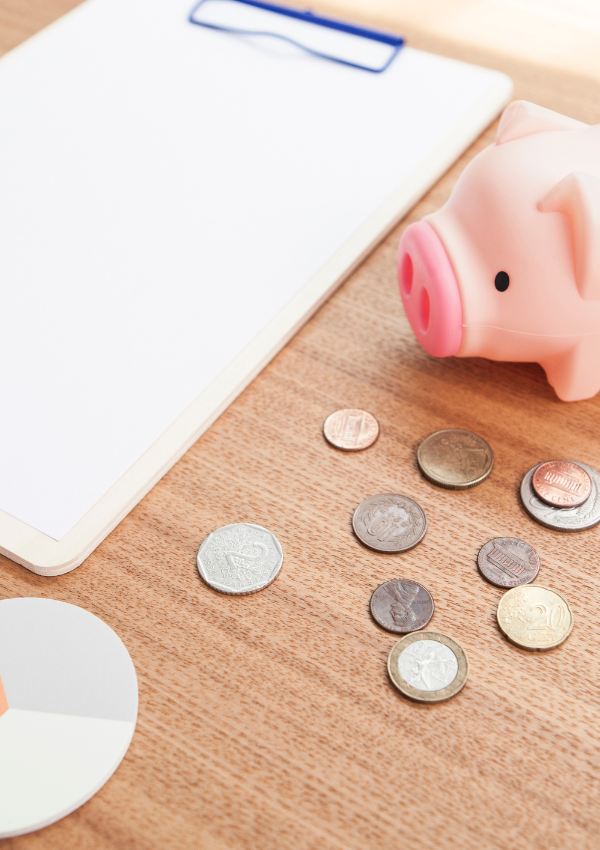I am a budget shopper.
There, I said it. I’m not sure why that is so hard to say. I think we have developed some sort of idea in our heads that it’s not okay to be on a budget. Like it would be uncomfortable to say to my friends ‘no, I can’t buy that shirt, it’s not in my budget.’ Guess what, I said it, and it wasn’t uncomfortable at all. They pushed a little, I said no, and we moved on.
It helps that I have been very open with my friends about my spending goals. I don’t get a lot of push to keep spending when they know that I’m working toward a goal and more likely to say no. If they push to hard, I remind them of my purpose and they back off. If someone in my circle were to consider pushing over and over again, I would have to reconsider whether I want them to remain in my circle.

I wasn’t on a budget for the last several years. If you’ve read my first few posts, you’ll know that I splurged like crazy during COVID due to the excessive amount of work I was getting. A shopping budget? I didn’t have one. I didn’t need one.
Once I started to recreate a budget and set specific goals for my future plans, that all changed. I no longer need just a budget, I need a shopping budget.
What is a Shopping Budget and Why is it Important?
A shopping budget is a specific subsection of your budget that is specific to shopping. This could include groceries, clothes, or just going out to splurge with your friends.
This is an immensely important part of your budget because spending is one of the areas where it is easiest for us to get out of control. Between sales, peer pressure, and that little impulse we get within ourselves to “just buy it” that is almost impossible to override, every time we go out shopping we put ourselves at risk of blowing through our budget. Buyers remorse is real, and it can happen quite often if you don’t put some control on your spending.
There are so many benefits to budget shopping. It can save you money, reduce those impulse purchases, increase your potential for financial freedom and even help make shopping simpler.
There are so many ways to set your shopping budget, stay within it’s bounds, and keep your quality and style that we will address below.
Understanding Budget Shopping
The idea behind budget shopping is to control your spending as part of a process to further your financial goals. Some of the most important principles of budget shopping are:
- Maximizing purchases and savings
- Giving you control over your money
- Simplify your shopping process
- Keeping yourself organized
- Staying on track with your larger financial picture
Mindset is one of the most important changes you need to make when working on your shopping budget. All of the budgeting in the world is not going to help if you spend past it anyways. You need to change the way you think. You need to determine whether retiring early is worth not buying that second pair of cute shoes because they’re on sale. This is where having a plan can help. As we’ll discuss below, having a set plan while you’re shopping can help you stick with this budget and keep your splurging shopping habits in check.

Benefits of Budget Shopping
There are so many benefits to budget shopping.
- Saving money- When you have a budget you are so much less likely to overspend, and guess what??? That saves you money! Money you would have otherwise spent splurging is still in your pocket. What are some other ways you can save money with budget shopping? Most of these benefits only work when you have a budget and a plan.
- Couponing
- Shopping around for cheaper options
- Buying at certain times to save with deals
- Buying in bulk
- Increased affordability- when trying to budget and save, you have a much better chance of saving on essential items, and even some luxuries if you have a plan. When you have a budget you may look at things such as second hand goods in order to find lower-priced alternatives to things you need which could result in huge cost savings
- More value- It is possible to get more value for your money when you budget shop. By looking for good deals, compare prices and track and monitor expenses, you can save significant amounts of money. Unless you accidentally stumble on a deal, the only way to consistently find the best values is to consistently look for the best deals and compare. Is that a lot of work? But what if it helped shave 2 years off your working career or take the trip to Hawaii you’ve always dreamed about? I think it would be worth it.
- Decrease in financial stress- Money is stressful. There’s no doubt about that. With a budget, you don’t have to worry if you’ll have enough money at the grocery store to make your purchase, you’ll already know. You’ll have a set amount of money and set items to buy, and when you get to the register, guess what? No stress, just you and your stuff and the money you already had set to buy it. Hopefully this alone is enough to motivate you to stick to that list. Remember to focus on what you truly need, find cost-effective solutions, and avoid unnecessary debt, and I assure you, some of your financial stress will disappear.
- Environmental benefits- I love the environment. Who doesn’t? I am currently on a path to become more environmentally conscious and attempt to lower my carbon footprint. What does this have to do with budget shopping? Looking for second hand deals, reusing products, and repurposing items help reduce waste and minimize the demand for new products. You save money, and help out the environment. Win-Win
- Creativity exploration- I bet you never thought to link your creativity with budgeting! Budget shopping is being creative. They’re the same thing! Getting thrifty, looking for alternatives, and thinking up creative ways to repurpose products are all going to stretch your creativity to new bounds. Maybe it’s creating a new recipe to not waste products, or doing a DYI project on some household item you were going to throw out. Being resourceful and exploring your creativity can save you quite a bit of money in the long run.
- Enhance your financial discipline- As part of your overall finances, and as perhaps the activity we engage in most frequently, budget shopping likely has one of the biggest impacts on your discipline. We’re not shopping for new houses every day, or booking an expensive vacation, but we are buying groceries, clothes and other necessities quite regularly. If we don’t have discipline with this smaller stage, how can we expect to control ourselves during our larger financial goals? Getting your financial discipline in order with budget shopping will make a positive impact on your overall financial management skills and promote responsible financial behavior.
Budget shopping does offer many advantages, especially to your overall budget, but remember to strike a balance. Don’t limit yourself to the point of extremes. Prioritize your needs and your financial well-being.

Preparing for Budget Shopping
Now that you know some of the advantages, let’s talk about how to prepare to budget shop.
- Set a budget- first and foremost, set a budget! Determine appropriate budgeting strategies that work for you, determine what your shopping needs are and begin making a list.
- Track your expense- based on the budgeting system you’re using for your overall expenses, i would recommend using that same tracking method. If you keep a spreadsheet, i would stick with it. If you use and app make sure it is categorizing your spends correctly. If you don’t already have a budgeting system in place and this is your first step, i strongly recommend writing out your expenses to start with. It helps give you a picture of what you’re really spending and holds you accountable for each and every dollar. Even if it’s just for one shopping trip, write it down. It may surprise you to see a $100 on a receipt when you only intended to spend $50. This can be a huge wake up call, much more so than using a mindless tracking app.
- Create a realistic shopping budget- BE HONEST. So often we lie to ourselves and generalize causing us to go over budget because we “thought we had enough.” Be honest and be realistic. Don’t give yourself $50 to buy new shoes if you only have $24 in your bank account. Create this budget off of real numbers, not just what you think you have
- Make a shopping list- Lists aren’t just for groceries! I just recently was invited to a gala. I set my budget amount and then looked around my house for what i would need. I had shoes, hair accessories and make-up already. So what was my list? One thing. The dress. After I had found the perfect dress, I, of course, stumbled into the shoe section. And there was the perfect match to my dress. I reminded myself of my goal of financial freedom, looked at my one item list, and left the store. Does this story seem silly? Maybe it is with one item. But most shopping lists are much longer, especially at the grocery store, or if you’re shopping for a trip. Take out the “do i already have that at home?” and remove the “I’ll buy it just in case” and make a list to prevent yourself from having duplicates. Planning ahead, making a list, and avoiding impulse buys can have a huge impact on your budget.
- Research prices and deals- are you looking for a gala dress too? Most major retailers put up in store promotions online, so you can browse quickly to see if there are any good selections in your budget range. This could save yourself both time and money. Make sure you compare prices and research deals before you make a purchase. 20% is not a deal if the product is marked up by 30%. Use comparison apps, websites, and browse for promotional offers. These are going to be some of the best on the market and save you quite a bit of money no matter what purchases you’re making.

Find Budget-Friendly Shopping Destinations
Thrift stores, consignment stores, discount stores and more! What am I talking about? Let’s find out.
- Thrift stores- a thrift store is a wonderful place to find deals, usually run by a charitable organization such as The Salvation Army. In these stores you can find a plethora of secondhand goods and trust me, they’re not always damaged, dirty or stained. You really can find some good deals here.
- Consignment shops- very similar to thrift stores, but usually run to make profit, consignment stores are full of valuable second hand goods
- Discount stores- I used to avoid dollar tree like the plague. That little discount store was sure to have some crazy knock off goods and i wanted no part of it. Boy was I wrong. I bought the same brands and products as I could get at the grocery store. Some of the products were a little smaller, but when i did the cost evaluation, i was still saving money
- Outlets- If you have an outlet mall or store near you, take advantage. You can buy name brand and quality goods at a greatly reduced rate directly from the retailer. These are not a scam. You really can save a lot of money. Sometimes this can be a good option to find some higher quality goods that will last a long time, thereby saving you more money over time.
- Online marketplaces- Who hasn’t heard of Poshmark? Okay, maybe some haven’t. What about eBay? Yeah I bet you’ve heard of them. Online marketplaces like eBay and Facebook marketplace are great places to get discounted goods. No one wants to overpay for a product so these sites typically have great rates, especially when someone offers something at a huge discount just because they want to get rid of it quick
- Auctions- your first time at an auction can be scary, whether online or in person. They seem complicated, but they’re really not, and they can help you save tons of money. I recommend checking one or two out before you commit, but once you understand the ins and outs of them, auctions are great deal finders.
Strategies for Budget Shopping
There are many different strategies for finding different deals depending on what you are trying to buy. We’ll discuss some of these strategies below.
- Time your purchases- have you ever heard that buying a car is usually cheaper at the end of the year? It’s usually true, because there are sales quotas to be met, and if a dealership isn’t at their quota, they might be more likely to give better deals to offload more cars in the last few months. This can translate to so many different industries. A grocery store accidentally buys too much beef and puts it on sale for a week. Mattresses go on major discounts around President’s Day. These all happen. When you’re ready to make a purchase, I would recommend scouting the best time to make that purchase. There are countless blogs and articles that have already done the research for you. All you have to do is read, learn, and maximize your savings.
- Embrace Coupons and Rewards Programs- I think people undervalue coupons as a regular shopper. We regularly hear about extreme couponers and think I can’t do that! Or we feel like we don’t have time to coupon, do we don’t bother. Trust me, you do. You don’t have to be an extreme couponers! You can just save a few dollars every bill. It adds up quick. Check your local ads as you shop, or pick your favorite coupon site and stick with it. Same with reward programs. Using their bonuses, shopping through portals, and taking several minutes to look through their savings can really add up. I recently redeemed a deal on crackers that ended up costing me $0.20 after a coupon and cash back from a reward program. The most important thing to remember with these, is not to buy something you weren’t planning on buying just to use the coupon or deal. Stick with your list and plan.
- Quality Over Quantity – this sentiment is true about 99% of the time. Prioritize quality. Long term, you will save exponentially. What’s a great example? A $20 shirt I bought is still in my closet 6 years later. The $5 shirt I bought the same day? It only lasted a year. Buying lasting items will result in less spend over time, thus saving you money. Just look at paper towels! The cheap, knock off brand with the thin sheets barely absorbs anything. You end up having to use more and more to clean up. And then you have to buy more. Did you really save money? Probably not. Investing in durable or timeless items will absolutely save you money in the long run, because you will need to buy less frequently, or not at all.

Repurposing and DYI for Budget-Friendly Solutions
We talked about repurposing a little earlier on, but I think it’s so overlooked it deserves its own category.
- DIY Projects and Crafts- This is especially good if you have children, but it can venture into adulthood too. Update old items by DYIng your own decor, up cycle clothes found in the back of your closet, or get the supplies to make your own personal care items. It’s fun and cost effective!
- Repurpose and Upcycle – you’d be surprised how much stuff around your house can be repurposed and upcycled. Check out YouTube and Instagram for inspiration! This helps both reduce waste and save money! Another win win.
Conclusion

It’s amazing what you can do with a little bit of spare time. Is it worth sitting in your car to browse coupons before going into the grocery store for two minutes? YES! Is it worth taking five minutes to look around your house to see what you have before building a shopping budget? YES! And once again, this isn’t limited to just groceries! Can you cut the bottom of a pop container off instead of buying plant potters, can you repurpose an old dress into a new shirt? The answers to these questions are YES and YES!
Being a budget shopper helps maintain your financial stability, and can make any shopping trip much more fulfilling. I love leaving the store and seeing under $20 on the receipt when I used to average $100 or more. Embrace the mindset of Budget shopping and change your life. In the beginning, it can seem very tough, but keep pushing through in no time and all and budgeting will stop being a burden and start being a habit. With these changes, you can watch your spending drop and see those savings grow. Use budget shopping to help your financial path and live the life you want to live.






